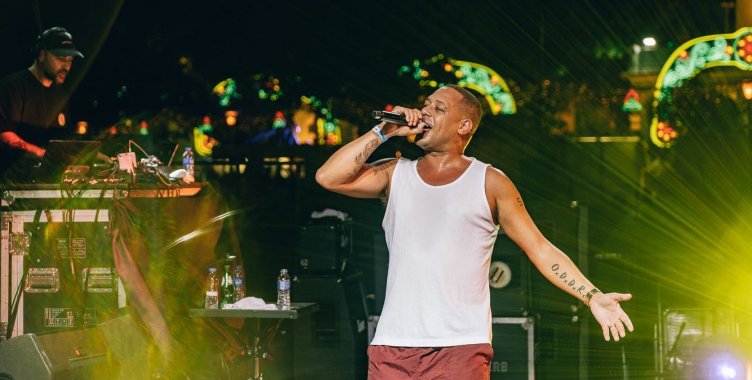Born in Huambo, son of Cape Verdean emigrants who later settled in Portugal in 1975, when he was just two months old, Carlão confesses that he does not have "a strong connection to Angola", remaining closer to his family origins in Cape Verde.
"My parents were very happy here (in Angola), unfortunately they had to leave, it was a complicated time. I think the next time I come back I have to go to Huambo, the place where I was born".
About today's Angola he is "very curious".
"I think it is a country with gigantic potential, but it is still coming out of the tragedy of the war that devastated everyone for many years. This marks generations, not only the economy, the structures, but the very soul of the people. Angola has suffered a lot and continues to suffer. The hope is that this potential will be well channeled, well used with a fair society for all Angolans", he hoped.
The lead singer of Da Weasel, a band he founded in 1993 and with which he enjoyed success, selling thousands of records, expressed "happiness" on his return to Angola, a country where he had already performed in 2006, expressing his desire to return "under other circumstances" .
The singer also spoke about racism, saying that there have always been racists in Portugal, but the far right "opened doors" for them to come out, noting, however, that there are movements to the contrary and that the country is safe for immigrants.
"These people exist, there are many, but the good people are many more", the musician, whose performance in Angola took place on Monday night, told Lusa.
The musician raised in Almada, who was presented by the Portuguese ambassador in Luanda, Francisco Alegre Duarte, as a powerful symbol of modern Portugal and mixed-race culture, says that there has always been racism in Portugal, but the appearance of certain political actors opened doors "so that people would come out".
He gave as examples Trump, Bolsonaro and European far-right politicians "who say barbaric things and are not punished for it", which helped many people feel comfortable speaking up.
"These people have always been racist, they have always been xenophobic, now they think they have that legitimacy", commented the artist, stating that, if on the one hand it is good to know who these people are, because "they have already shown their face", on the other "it is very scary because it's not a fair fight."
Carlos Nobre, the Pacman of Da Weasel, now better known as Carlão, pointed out that the far right "lies blatantly and distorts facts", pointing out Chega who "lies every day", lies that attract those less informed about what "very dangerous".
He highlighted, however, that there are also movements that go against this trend, noting that shortly after the elections that gave 50 deputies in the Portuguese parliament to Chega, there was a huge turnout at the 25th of April celebrations "like there hadn't been in a long time" .
Asked whether being an immigrant in Portugal today presents risks, he admits that far-right movements have made aggression "commonplace", but considers that Portugal has not become unsafe.
"When people are unhappy, for various reasons, they hold on to what they have and someone is there feeding them lies and they go after it," the artist told Lusa, contesting statements associated with emigration such as the lack of security, stealing jobs or living off subsidies.
The rise of parties like Chega, but not only that, showed that "there are many people who are xenophobic and racist and afraid of emigration, afraid of difference, homophobic, sexist, sexist, there are all these people, but many more people who are completely contrary to these people. Good people will prevail, we are not at that point where it is not safe", he noted.







